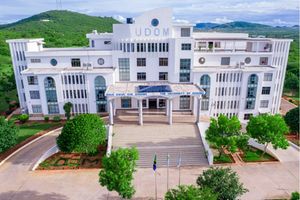Chinese varsity, SUA team up to improve maize production

Morogoro. The China Agricultural University (CAU), Morogoro regional government and Sokoine University of Agriculture (SUA) have launched a three-year programme that aims at improving maize production in the region.
The programme will focus on reducing poverty through enhanced agricultural production and underlying concept of increasing the local peasants’ productivity by using improved seeds, available local labour and farmland in light of the local circumstances in the country.
Speaking during the inauguration ceremony at Mtego wa Simba village in Mikese ward on Thursday, the CAU president, Mr Sun Qixin explained that the programme will increase yields of the staple food and income of the peasants by sharing China’s “two experiences” in agricultural development.
“The “two experiences” here refer to the Chinese experience of government supporting agricultural development and the Chinese experience of labour-intensive agricultural technology,” said Mr Qixin.
He added that through the sharing of “two experiences”, the program will also explore a wider range a poverty reduction programme models that focus on food security through technical means and based on people’s exchange, which will in turn contribute to the ongoing attempt to create effective China-Africa cooperation models for sustainable development.
Mr Qixin explained that among other project objectives is to explore how the China-Tanzania agricultural cooperation supports an effective interaction between local four levels of governments, research institutions and rural communities and seek to design a set of community development solutions, which will spur the development of agriculture and improve peasants’ livelihood.
For her part, China ambassador to Tanzania Wang Ke pledged that her country will continue to provide support in the agricultural sector to enhance the country’s economy towards an industrialised Tanzania.
The project’s partner organisations in the country include the Planning Commission of the President’s Office, ministries of Agriculture and that of Science and Technology, the Regional Administration and Local government, Morogoro and SUA.




